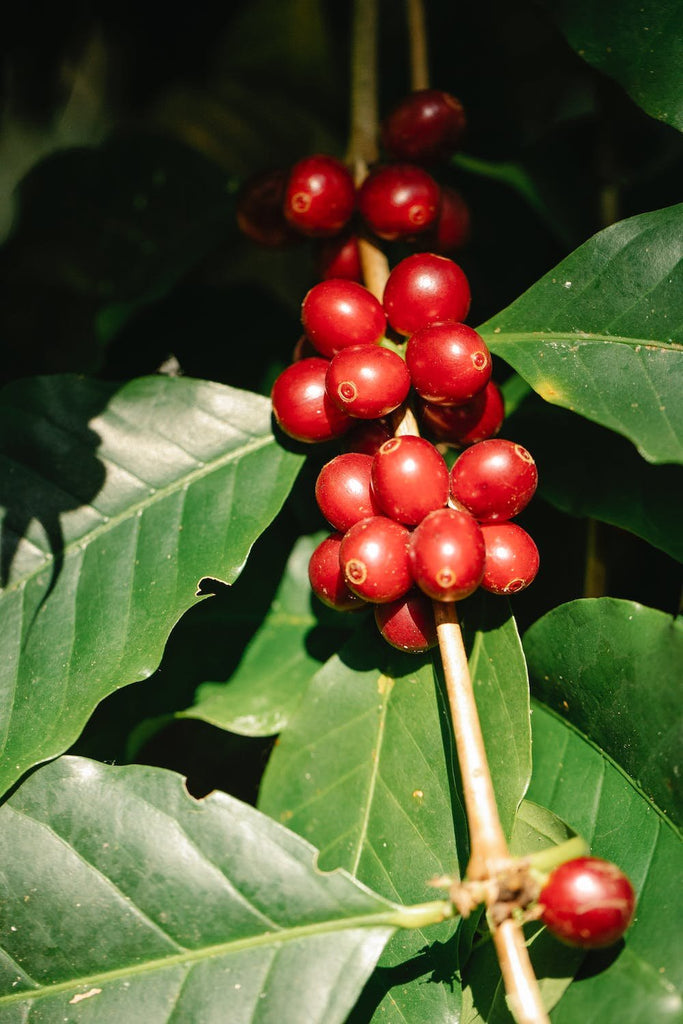
Ask Aunt Bean: What Makes Coffee Organic?

Welcome back to our advice column, where any and all coffee questions may be answered. Yours can be emailed to info@redrockroasters.com with the subject line “Advice Column.” Without further ado:
Dear Aunt Bean,
What makes coffee organic? Is it healthier? Does it taste better?Signed,
Miss Labeled in ABQ
Dear Miss Labeled,
This question has great importance to us personally as roasters who offer both organic and conventional coffees and go to great lengths and expense to a) keep our USDA organic certification, and b) maintain the integrity of our organic coffees.
Side note: if you want to read what we’ve written about other certifications, you can do so here. For this post I’ll focus just on organic, its definition, its scope, its benefits, and its shortfalls.
I’m going to answer the last part of your question first. Does organic coffee taste better? No. It is exactly like conventional coffee in that a roaster could source a not-great coffee or a magnificent coffee, and then could either ruin or enhance it with the roasting process. There is nothing inherently tastier about either conventional or organic coffees.
To answer the first part of your question: USDA organic certification tells you that your coffee was grown without the use of synthetic herbicides or fungicides. It ensures that soil and water protection plans are in place (more on that below). Organic growers and processors must submit organic site plans, describing how they will adhere to these guidelines, and are subject to random audits and detailed inspections. Our company gets inspected yearly, for example, with our plant and all our receiving and sales paperwork examined. We’re also subject to random sample testing for pesticide residue. Organic does not mean that no pesticides or herbicides of any kind are used—just that they must be organic, or, in cases where synthetics are allowed, present in amounts below a defined minimum.
Organic coffee fetches a premium for coffee producers. Those who carry both organic and Fair Trade together, as all our organic coffees do, receive an automatic $0.30 premium per pound, before cup quality is assessed. It also costs producers and processors and is time-consuming and labor-intensive.
The coffee we roast is imported from many different countries, and environmental and food safety laws differ dramatically between coffee-growing locales. There are no US regulations requiring green coffee to be tested for pesticide residue, which means that organic certified coffee is the only kind actually subject to such testing. Does conventional coffee contain pesticide residue? Yes, in at least some cases, and that includes pesticides which have been banned in the US, like DDT and chlorpyrifos. But apart from limited academic studies, we simply do not have information on the scope of the problem.
So, is organic coffee healthier for you? Well, more is known about the origin, processing, and pesticide load of green coffee. Organic farming is a system demanding transparency and traceability, so the consumer can be assured that the coffee they are drinking came from a specific place where banned pesticides are not in use. In that sense, yes, I’d say organic coffee might be healthier for the consumer. On the other hand, some permitted organic pesticides could also have ill effects on human health.
But organic coffee is mainly healthier for the producer. Coffee farmers often cannot afford or do not have access to personal protective equipment that could help them avoid pesticide exposure while treating conventional coffee plants. 81% of coffee farmers in Jamaica suffered health effects of handling pesticides. Pesticide exposure caused toxicity and was associated with reproductive harm in male coffee workers in the Dominican Republic. Workers on organic coffee farms did not experience these negative effects.
Organic certified coffee may be healthier for the environment, as well. For example, because of organic farm practices like crop rotation, letting fields lie fallow, avoidance of synthetic fertilzers, and buffers betwen organic and conventional crops, the soil from organic farms was found in a study by Northeastern University to have 26% more carbon sequestering potential.
Water quality is another environmental benefit of organic farming. At the Lambayeque beneficio where our Peru gets processed, a simple gravel-and-sand water filter (required by our partners’ organic certifier) prevents the environmental contamination and human disease that could be caused by wastewater from coffee processing.
Some of my favorite coffees are not organic, and I sell them because they are superb, because I have relationships with producers who have chosen, for many valid reasons, not to obtain organic certification, or because availability of organic coffee is far less than conventional. I am comfortable drinking both conventional and organic coffee, but I know my customers might have more or less sensitivity to these issues than I do and I strive to provide the best of both types.
As always, the choice is yours. I hope you’ll head back to the market or cafe with more information and confidence.
